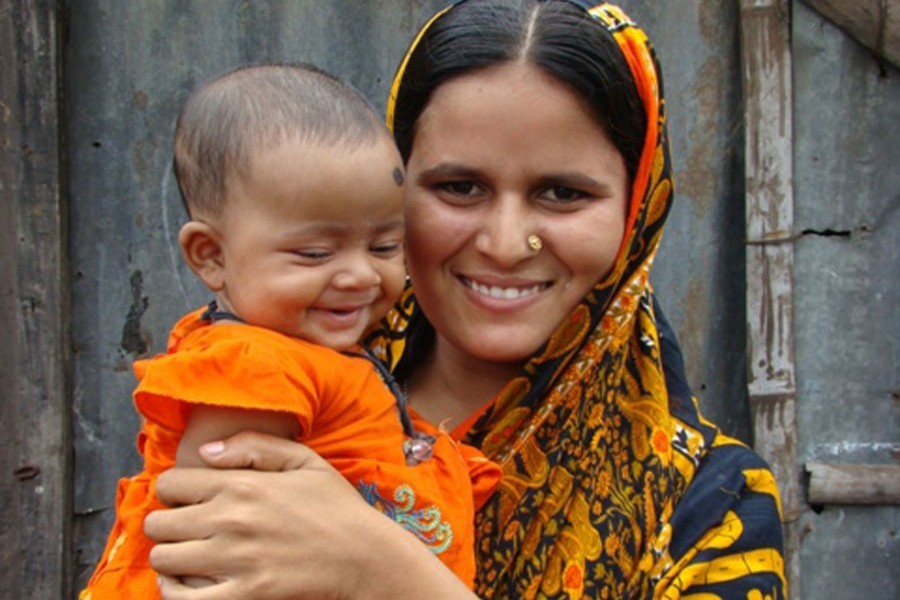Maternal and child health is two in one and a highly delicate issue because involved with this is a whole gamut of physical ---not excluding even mental --- well-being and development aspects. This week organisations working with these highly important and yet somewhat sidelined issues have refocused on those, perhaps prompted by the incumbency of the post-Covid stark reality. Reportedly, maternal undernutrition has peaked in the past three years at 38 per cent among underage mothers 15-19 years of age. Its impact is devastating with 22 per cent low birth weight of the newborn, 41 per cent and 16 per cent children under five years of age getting stunted and wasted respectively. This means malnourishment leads to stunting of 6.2 million of children of that age group and another 2.2 million children suffer wasting.
Evidently, the gain Bangladesh steadily achieved in lessening maternal and infant deaths has suddenly been jolted during the pandemic-time lockdown and the post-pandemic economic crunch time. One of the reasons was child marriage. Underage girls given off to marriage suffer gender discrimination both at parents' and husbands' homes. Their reproductive health is not only seriously compromised but also their maternal nutrition is often overlooked. This nutritional deficiency reflects on the babies that are born to them. Underweight neonatal babies and stunted and wasted children under five years of age are just a natural consequence. Child marriage cuts short education of girls in particular and early pregnancy of them is responsible for the birth of underweight babies. Economic hardship further worsens the situation by constraining both mothers' and children's access to nutritious foods. Thus a vicious chain of poverty, a lack of education and awareness of health and hygiene and gender discrimination in combination takes a heavy toll on the quality of life.
When human resource development ought to be the prime goal of a nation, the widening socio-economic disparities made worse by the post-Covid crisis time puts at risk the country's programme for human resource development. In Western developed countries, there are welfare benefits for vulnerable mothers, babies and children. Bangladesh has introduced immunisation programmes which have saved millions of infants and children from death before the age of five. Why cannot the policymakers think of a welfare programme for such mothers and babies in order to protect the latter from stunting and wasting? A fund specially created for this purpose can even be used in order to enrol prospective vulnerable mothers for encouraging them to avoid early pregnancy and opt for birth spacing. But before that the education support programme for girl children should be strengthened further in order to stop child marriage.
No nation can afford such large-scale malnourishment of its people. In fact, for any nation it is a disgrace. Now that the country has set its sight on achieving the sustainable development goals (SDGs), there is hardly any option other than adopting an inclusive economic policy for the backward and vulnerable segments of society. The pandemic has posed a threat to the country's gain in achieving the goals but a rational approach to the economic and social problems can bring about some kind of balance rendering all segments of society productive enough to contribute to wealth creation.


